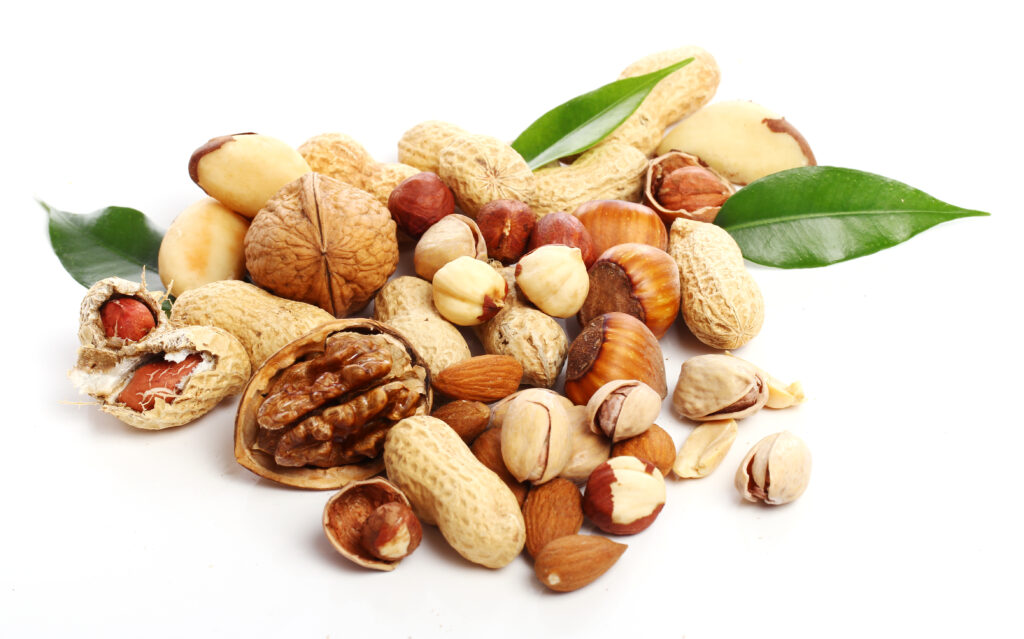Your emotions are useful to you. They significantly influence how you choose to act and think. Most moods pass within a day or so. And, even in a gloomy mood, you can still go about your daily activities. But if you have a down or dark mood, it seems to be significantly disrupting your life. So, emotions and moods are quite complicated. There are many elements combined to create them in the brain, such as biology (hormones and brain chemicals), psychology (personality and learned behaviors), and the environment (sickness and emotional stress). Diet is one of the numerous everyday factors that contribute to negative/positive mood on a regular basis.
Diet and nutrition’s impact on mental health is extremely complex and not entirely understood yet. However, research connecting the two is growing rapidly. In recent years, there has been evidence that diet can contribute to the development, prevention, and management of mental health conditions, including depression and anxiety disorders.
Researchers are also investigating the reasons why food may affect mental health. The effects of food on gut microbiota (organisms in the digestive tract), neuroplasticity (the brain’s capacity to modify structure and function), oxidative stress (cellular damage), and chronic inflammation are the subjects of current research.
While there is still much to understand about the effects of dietary patterns on mental health issues, there is evidence that a healthy diet may have a protective effect. In fact, many believe that proper nutrition is just as essential for mental health as it is for physical health.
Here are some examples of healthy foods that may boost your mood.
Fatty fish

Fatty fish like salmon are abundant in omega-3 fatty acids, which are likely to reduce the incidence of depression. In addition, omega-3 fatty acids are a group of essential fats that you must acquire through your diet because your body can’t produce them. These fatty acids can contribute to the fluidity of your brain’s cell membrane and appear to play crucial roles in brain development and cell signaling.
Dark chocolate

As a rapid source of fuel for the brain, chocolate’s high sugar content may improve mood. Plus, it has a high concentration of health-promoting flavonoids, which have been demonstrated to promote blood flow to the brain, reduce inflammation, and enhance brain function, all of which may support mood regulation. Moreover, its pleasant flavor, texture, and smell may also encourage happiness. Since milk chocolate contains added sugar and fat, it is preferable to choose dark chocolate, which contains more flavonoids and less added sugar.
Fermented foods

Fermented foods like kimchi, yogurt, kefir, kombucha, and sauerkraut are rich in probiotics that promote intestinal health and may increase serotonin levels. Additionally, the gut microbiota contributes to brain health, so research is beginning to uncover a connection between healthy gut bacteria and lower depression rates.
Serotonin is a neurotransmitter that influences several aspects of human behavior, including mood, stress response, appetite, and sexual drive. Up to 90 percent of the serotonin in your body is produced by your gut microbiome, or collection of beneficial bacteria in your gut.
Bananas

Vitamin B6 is rich in bananas, which supports the synthesis of feel-good neurotransmitters such as dopamine and serotonin. In addition, the sugar in bananas is slowly released into the bloodstream, resulting in stable blood sugar levels and improved mood regulation.
Oats

Oats are a whole grain that might improve your mood. You can see that they are available in various forms and at any time. Additionally, they are a superb source of fiber, which slows the digestion of carbohydrates and allows for a gradual release of sugar into the bloodstream, thus stabilizing energy levels and preventing mood swings and irritation. Oatmeal is a rich source of iron, so the signs of iron deficiency can lead to fatigue, sluggishness, and mental disorders.
Berries

Berries are loaded with antioxidants and phenolic compounds, which play a vital role in preventing oxidative stress. They are especially rich in the pigment anthocyanins, which gives certain berries their purple-blue color. A diet that is high in anthocyanins was linked in one study to a 39% lower chance of depression symptoms.
Beans and lentils

Beans and lentils are full of beneficial nutrients. They are a rich source of B vitamins, which boost mood by increasing levels of mood-regulating neurotransmitters like serotonin, dopamine, norepinephrine, and gamma aminobutyric acid (GABA). Moreover, B vitamins serve a crucial function in nerve signaling, which helps nerve cells communicate effectively. A deficiency in these vitamins has been associated with mood disorders such as depression.
Nuts and seeds

Nuts and seeds are rich in fiber, plant-based protein, and healthy fats. They provide tryptophan, the amino acid necessary for the production of serotonin, a mood-enhancing chemical. Moreover, nuts and seeds are a large component of Mediterranean diets, which may support brain health. Some nuts and seeds are abundant in zinc and selenium, which are important for brain function. Deficiency in these minerals is connected with increased incidences of depression.
The Mediterranean diet refers to the typical dietary habits of the Mediterranean region. This traditional eating pattern prioritizes a variety of fruits and vegetables, whole grains, legumes, healthy fats, moderate amounts of seafood, low amounts of dairy products, and small portions of red meat and red wine. The Mediterranean diet has the ability to lessen the risk of depression as well as other chronic conditions.
Another thing you should know about carbohydrates is how they affect the brain and emotions.
For the brain to be able to concentrate and focus, it requires sufficient blood glucose energy. In fact, the brain uses 20% of all the energy your body needs.
Blood glucose is derived by the consumption of carbohydrates. It would be more beneficial if the carbohydrates came from whole grains, veggies, and fruits.
A lack of glucose in the blood (hypoglycemia) can lead to feelings of weakness, fatigue, and confusion. This may occur if you do not consume enough foods containing carbohydrates. It can also happen if you have a very restrictive diet or irregular eating habits.
Although glucose ensures good concentration and focus, once your blood glucose levels are within the normal range, you should not increase your glucose intake to boost your cognitive function. However, if you are already consuming carbohydrates, additional sugary energy drinks are unnecessary and ineffective.

Start paying attention to how different foods affect your mood on a daily basis, not just in the moment. Try a “clean” diet for 2-3 weeks by eliminating or gradually reducing all processed foods and sweets. Then, gradually reintroduce healthy items into your diet and see how you feel.
When some people “go clean,” they are astounded by how much better they feel both physically and emotionally and how much worse they feel when they reintroduce foods known to cause inflammation.
Today is your day to start fresh, to eat right, to train hard, to live heathy, to be proud. – Bonnie Pfiester

